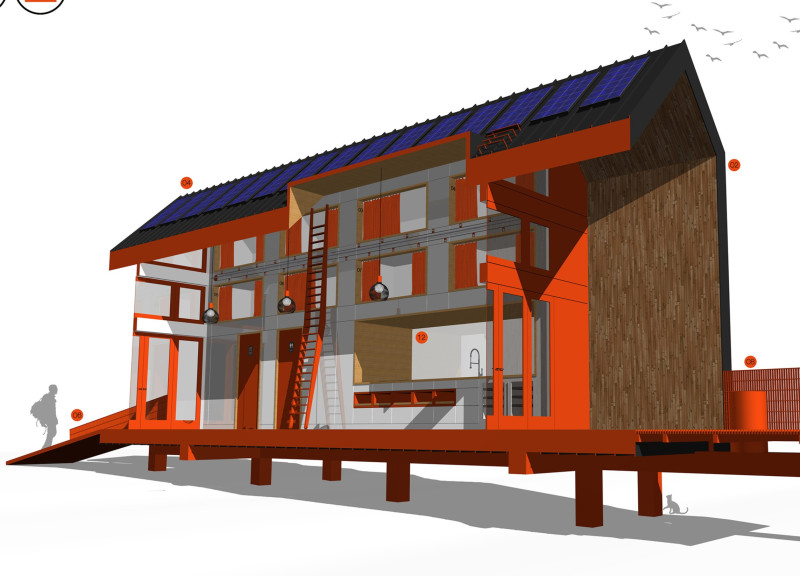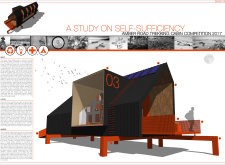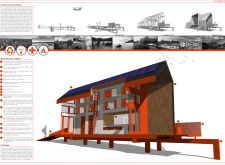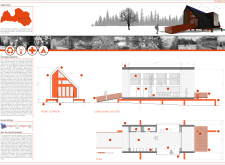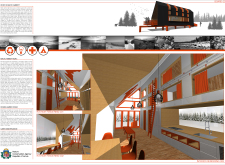5 key facts about this project
## Overview
The Amber Road Trekking Cabin is situated in the Latvian wilderness, responding to both environmental and cultural contexts. As an architectural exploration of self-sufficiency, the design reflects the historical significance of the Amber Road, a traditional trading route along the Baltic Sea. Submitted for a competition in 2017, the cabin emphasizes innovative and sustainable practices, utilizing local materials and environmentally-friendly technologies.
### Spatial Interaction and Design
The cabin's layout is intentionally oriented to foster engagement with the surrounding landscape. Its angular form and strategic positioning allow for optimal natural light and views, thereby enhancing the user experience. The design accommodates hikers and nature enthusiasts through a modular structure that promotes ease of assembly in remote locations. Key features include open communal spaces and adaptable sleeping quarters, which cater to both privacy and social interaction.
### Material Selection and Sustainability
Materiality plays a critical role in this project, focusing on both aesthetics and functionality. Structural components such as laminated beams and columns provide robustness, while metal panels serve as a rain-screen cladding that enhances durability. Natural wood finishes bring warmth to the interior, contributing to a welcoming environment. Solar panels are integrated into the design to support energy production, reflecting a commitment to reducing environmental impact. The construction methodology prioritizes prefabrication, optimizing efficiency and minimizing the carbon footprint throughout the assembly process.


